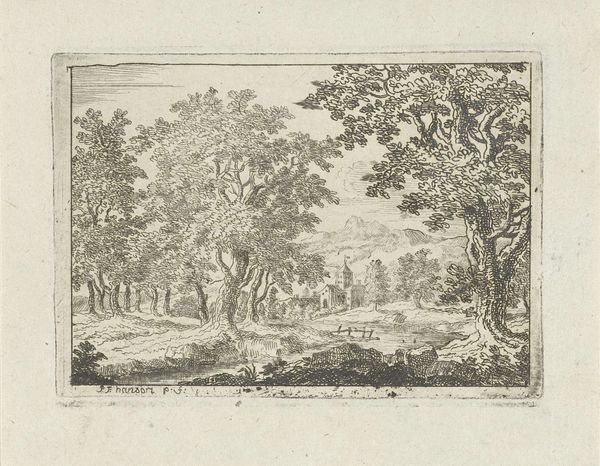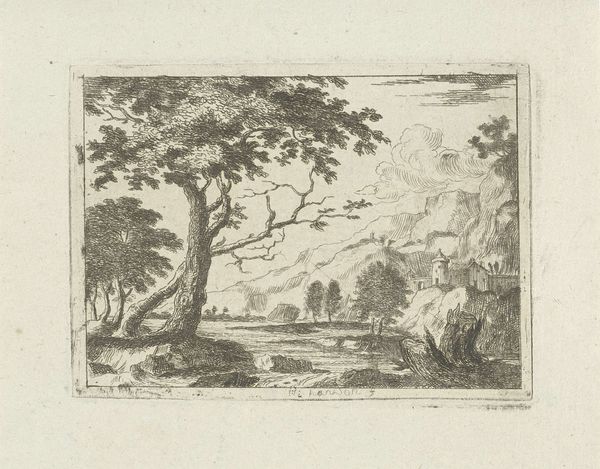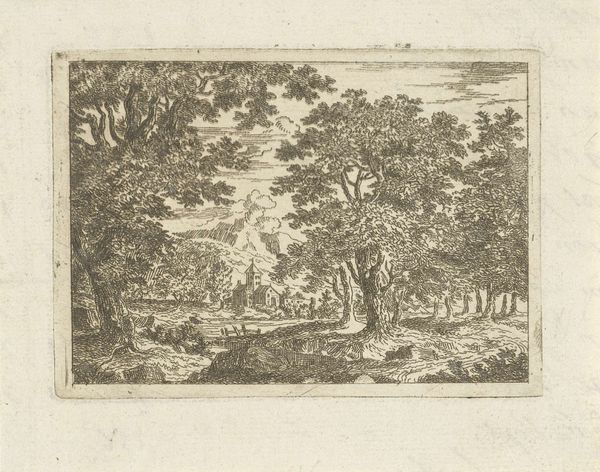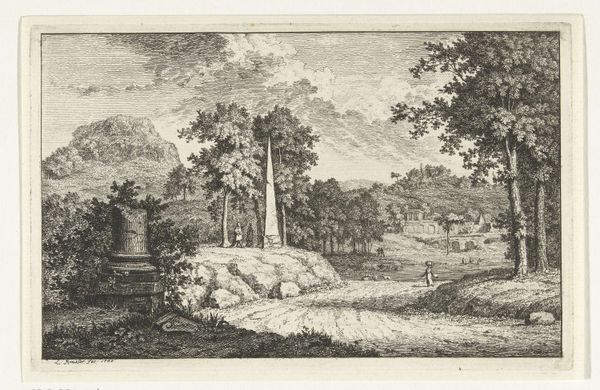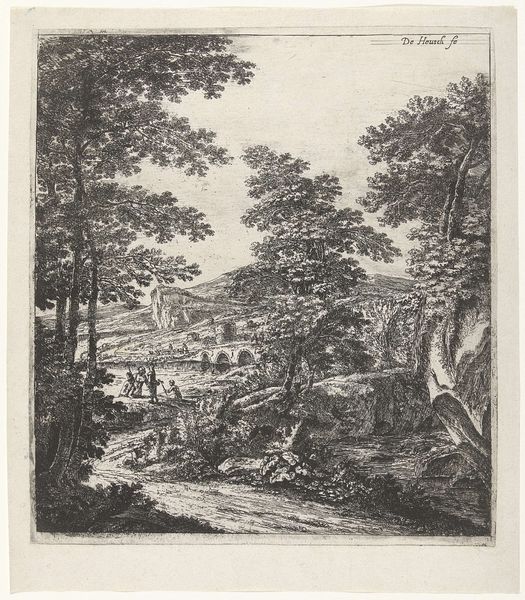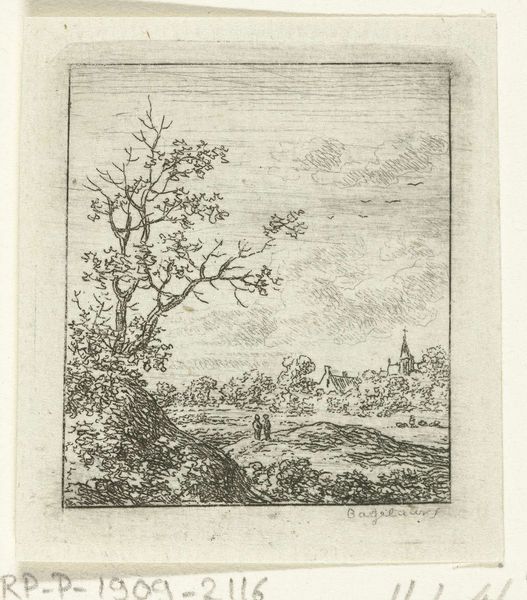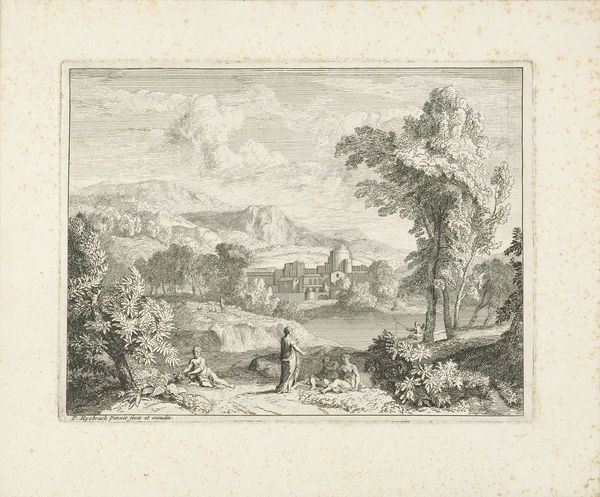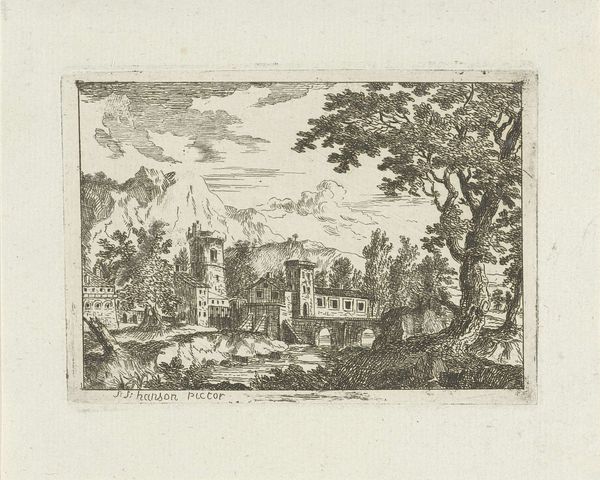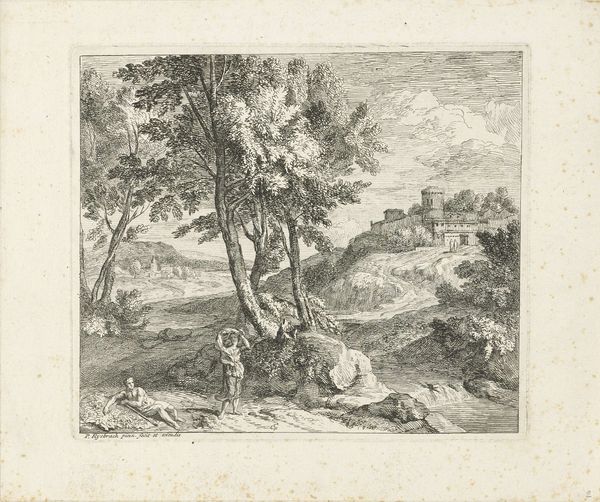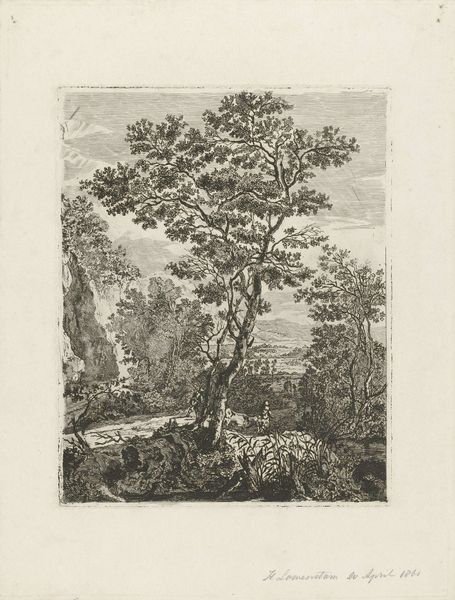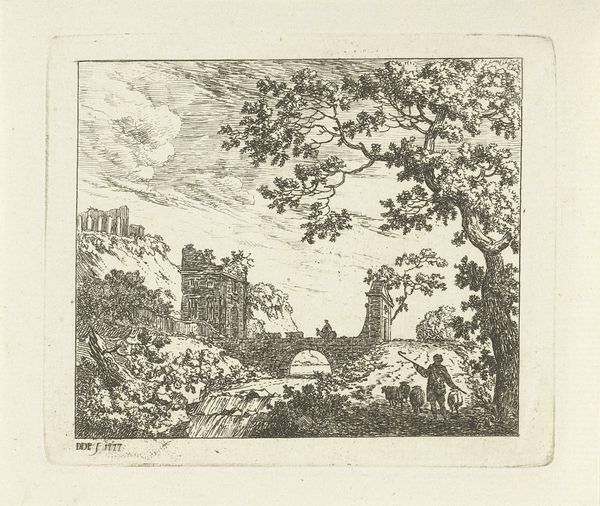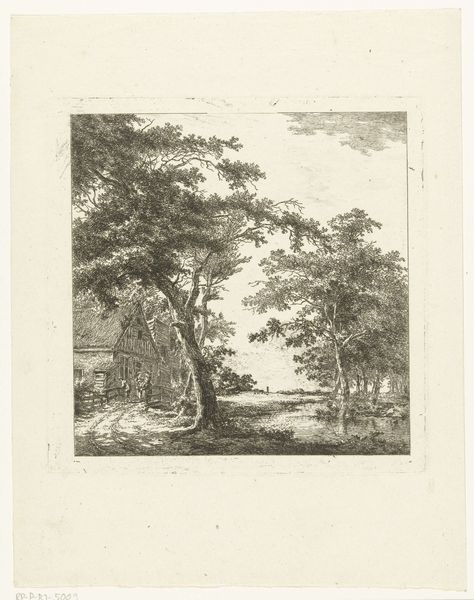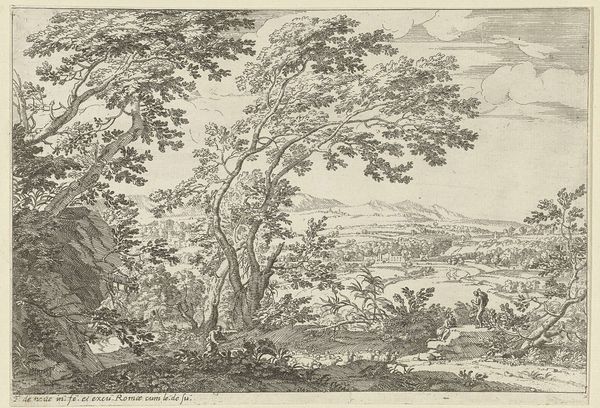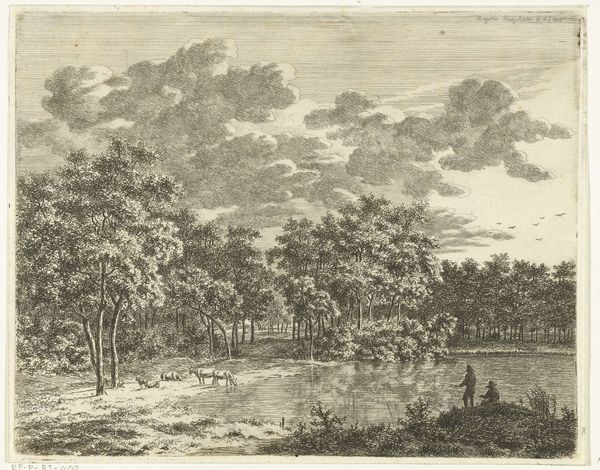
print, etching, engraving
# print
#
pen sketch
#
etching
#
old engraving style
#
landscape
#
river
#
personal sketchbook
#
sketchwork
#
pen-ink sketch
#
pen work
#
sketchbook drawing
#
storyboard and sketchbook work
#
sketchbook art
#
engraving
#
realism
#
initial sketch
Dimensions: height 76 mm, width 103 mm
Copyright: Rijks Museum: Open Domain
Editor: This is "Dorp aan een rivier," or "Village on a River," an etching by Jean Joseph Hanson, created sometime between 1741 and 1799. There's a really serene, almost dreamlike quality to this landscape. How do you interpret the symbolism within this seemingly simple scene? Curator: It's fascinating how the image uses familiar motifs, like the river and the village, but places them within this delicate web of etched lines. The river, of course, has always been a powerful symbol – a boundary, a source of life, and a path forward, and is that perhaps a mountain dominating in the background? Does the village, nestled between the water and what appears to be the peak of a mountain, also strike you as evoking some kind of cultural narrative? Editor: Yes, I do feel a narrative! The placement feels almost deliberate. Is that something commonly explored at this time, creating art pieces with this sense of placement and meaning? Curator: Definitely. Consider the era. Landscape art wasn't just about pretty scenery; it was often imbued with meaning. Think about the picturesque movement. Artists sought to capture not just what they saw, but how a place made them feel. They would carefully arrange elements, much like composing a poem, to create a particular emotional effect. Editor: That makes a lot of sense. So, the artist isn't just drawing a landscape, but telling a story about our relationship to nature? Curator: Precisely! Look at those trees framing the scene. Trees can symbolize knowledge, growth, and connection to the earth, but here they are at the edge. So, are we observers? Participants? Hanson's village now emerges, a space nestled at the intersection of the human and natural realms. It evokes thoughts about stability, change, and humanity's place within the broader landscape. What do you think? Editor: I love that! It's a whole different layer to appreciate. Curator: Agreed, it shows how even a seemingly straightforward image holds a universe of symbolic potential, a subtle invitation to engage with cultural memory.
Comments
No comments
Be the first to comment and join the conversation on the ultimate creative platform.
